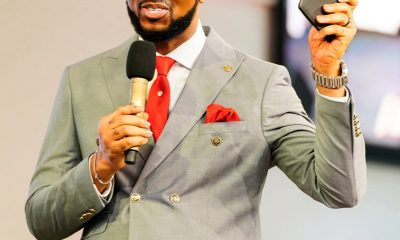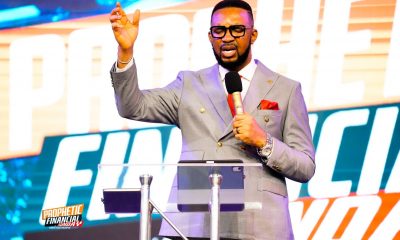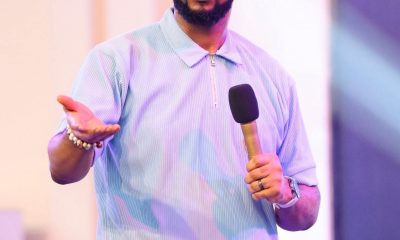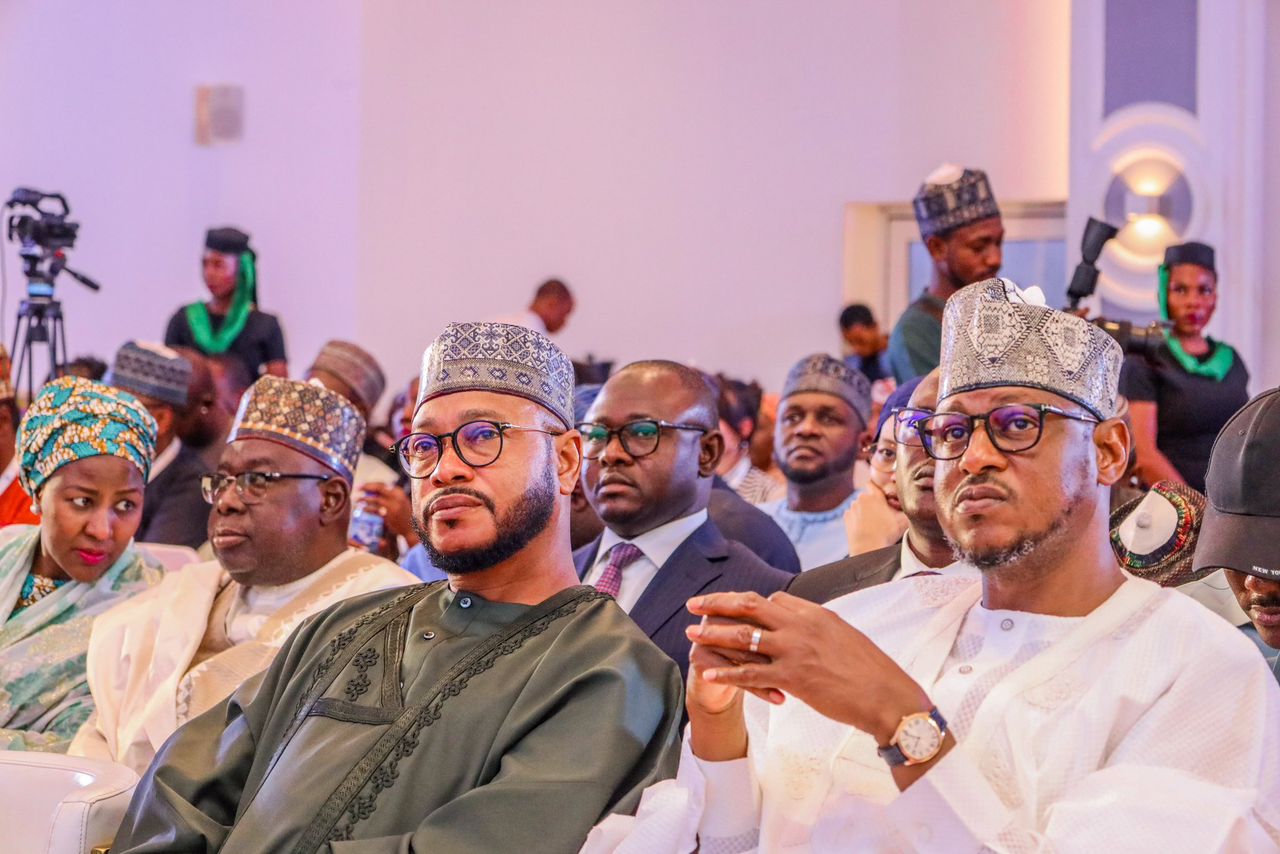society
An Explainer Of Primate Ayodele’s Prophecies On US Presidential Election
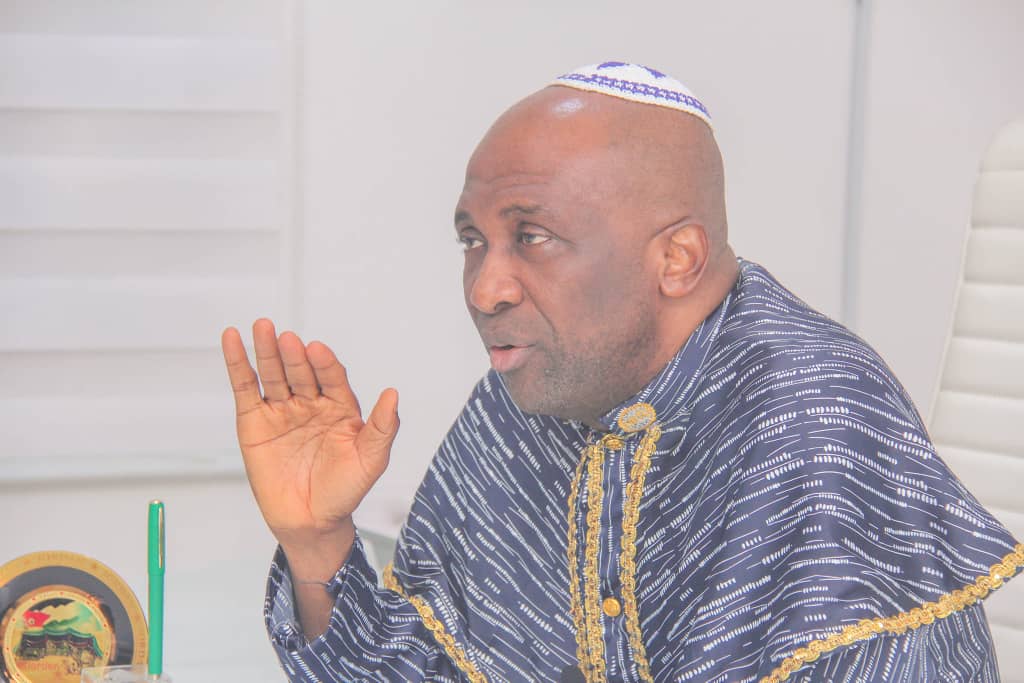
An Explainer Of Primate Ayodele’s Prophecies On US Presidential Election
Following the emergence of Donald Trump as winner of the US Presidential election, many have shown their misunderstanding of Primate Ayodele’s prophecies hereby saying he missed the mark with his prophecy regarding the election.
The prophecy which is being described as a miss was shared by Primate Ayodele on September 29. The prophet said Trump would lose if election was conducted on that day.
These were his words
”If there is an election today, Trump will not win, he will lose. Kamala Harris will shock the world, her policies will be better than Trump’s.
“Trump will be another disaster for the world and if there is an election today, he will fail. If he loses this election, he would want to create a kind of protest to instigate people, he must be careful.’’
Grammatically, this statement isn’t so ambiguous that it would be misunderstood by anyone who has primary knowledge of the English language. The simple explanation is that if an election was held on September 29, Trump would lose the election. It didn’t mean that if an election was held later after that date, it would remain the same; it’s not difficult to understand at all.
It would have been different if Primate Ayodele hadn’t given further updates and clarifications about this prophecy. He had shared prophecies before and after that statement regarding the US presidential election but probably due to laziness or an intentional move to smear the name of the prophet, the writer became blind towards other prophecies and dwelt more on the one he didn’t even understand.
In a video shared at a later date before the election, Primate Ayodele specifically warned Kamala Harris to be careful of Donald Trump and mentioned five states she should work on if she wanted to win the election.
“Kamala Harris listen to me now, you will lose this election if you are not careful enough, you are not doing well in your strongholds, they will knock you out at the electoral college. If you don’t want to lose, you have to work very well on your strongholds. If you are waiting to take from where Trump has, it may be difficult for you. Work very well to have a landslide in your strongholds. Don’t think that the way Trump is doing they won’t vote for him, don’t say that. For you to win this election, you must work very well on your strongholds and these five states; Michigan, Ohio, Pennsylvania, Wisconsin, and California. If you don’t, it will be very difficult for you.”
Meanwhile, Primate Ayodele, in a prophecy before Kamala Harris became the candidate of the Democratic party, shared that she would have problems in some states he mentioned, and advised her on what to do to win the election.
“Kamala Harris will be nominated as the Democratic candidate, which will change the face of politics in America. During the general election, she will face challenges in states such as Wisconsin, Pennsylvania, Philadelphia, Ohio, and Michigan. Just as I advised Hillary Clinton to concentrate on these states, Kamala Harris should do the same if she wants to win.”
From the foregoing, it’s important to note that picking just one prophecy out of about five prophecies Primate Ayodele made on the US Presidential election to push an agenda that the prophet missed is wrong and uncalled for. God knows for how long the writer has been waiting for Primate Ayodele to make a prophetic mistake but even this isn’t a mistake, it’s purely an intentional misunderstanding from the writer, and, sadly, journalism has been reduced to a propaganda tool in the hands of some practitioners.
By now, people should have gotten used to how prophecy works and how Primate Ayodele shares his prophecies. Primate Ayodele won’t say someone would lose and another would win without talking about how it will happen, either loss or victory. We need to understand that God loves everyone and it is not his wish that any negative thing happens to a candidate, however, he can warn both candidates and whoever follows ends up winning. It’s that simple.
Primate Ayodele said Kamala Harris would win the election if she could secure her strongholds and win five states which he mentioned but she lost some of her strongholds and out of the five states he mentioned, Harris won only one. What magic should have happened?
For Donald Trump, Primate Ayodele said he would lose if the election was held in September and this may have even inspired him to do more before the election finally held. We all saw the last-minute trick Donald Trump pulled; going to meet people personally, driving a garbage truck, going to McDonalds to serve fries, and several other gimmicks he employed to strengthen his base, what was Kamala Harris expecting?
Even in the bible, the blessing that was supposed to be gotten by Esau went to Jacob by strategy and gimmick. Esau was Isaac’s favourite and when he was about to die wanted to bless his favourite son but Jacob ‘stole’ that significant moment to receive the blessing instead. Hence, victory isn’t reserved for anyone, faith without work is death, Kamala Harris failed in the states Primate Ayodele warned her to work seriously and she lost, it’s simple.
Taking further clues from the bible, God sent Prophet Jonah to Nineveh to tell them the city would be destroyed in 40 days but after seeing their efforts at making things right, God himself told Jonah that he wouldn’t destroy the city any longer. As at the first time Jonah spoke, the city was to be destroyed but later on, the city was rescued. Would we now say Jonah missed it because what he initially said didn’t happen?
God sent a prophet to Hezekiah to inform him that he was going to die, and the prophet obeyed and delivered his message. However, after Hezekiah prayed to God, the prophet returned to say God had added 15 more years to his age. Did the prophet miss it?
Before we castigate prophets and men of God, there is a need for us to consider so many things and conduct due diligence. In this case, a simple analysis of English language, and the other prophecies of Primate Ayodele would have helped the writer understand better. Anyways, this is another failed attempt to smear Primate Ayodele’s name.
society
Carry‑On Chaos: Travelers Clash Over Tightened Size Rules in 2026

Carry‑On Chaos: Travelers Clash Over Tightened Size Rules in 2026
By George Omagbemi Sylvester | Published by SaharaWeeklyNG
“As airlines worldwide strictly enforce carry‑on dimensions, social media erupts, passengers incur surprise fees, and industry experts warn that confusion and inconsistent policies are straining the travel ecosystem.”
A growing storm of discontent has erupted across social media platforms, particularly on TikTok, as air travelers from the United States to Europe and beyond grapple with the tightening of carry‑on luggage size enforcement in 2026. What began as a viral video warning about changing baggage measurements has ballooned into a widespread debate over airline policies that many passengers say are opaque, inconsistent and financially punitive.
The spark was a clip shared by TikTok user karenschaler, a screenwriter and travel enthusiast, urging fellow flyers to reexamine their carry‑on bags before their next trip. She insisted that “so many carry‑on bags that used to get through fine are now getting pulled, gate checked and you are being charged,” especially if those suitcases have hard shells, bulky wheels, or extended handles that make them technically oversize.
What most passengers didn’t realize until recently is that this isn’t a new rule implemented by governments, there’s no global treaty or international regulator that set new carry‑on dimensions for 2026. Rather, what’s changed is the degree of enforcement by airlines and how they interpret their own size restrictions, which often include wheels and handles in the measurement.
At the centre of the controversy is the 22 x 14 x 9 inches limit (56 x 36 x 23 cm), a standard carried by many U.S. carriers, including American Airlines and others. Under these policies, the size limit now explicitly counts everything on the bag not just the main compartment, but also the wheels and pull handle. Bags exceeding this, even by fractions of an inch, are being flagged at gates and subjected to surprise “gate‑check” fees that can range from around $35 to $65 or more.
A particularly viral incident that fuelled the debate involved an NHS doctor denied boarding on an easyJet flight because her carry‑on (though marketed as compliant) was deemed too large when measured by airline staff at the gate. That moment, widely shared and criticized online, has given tangible form to passenger frustration.
Experts point to multiple forces behind this shift. Airlines are under growing pressure to reduce boarding times and streamline turnaround operations. Flight delays often are caused by bottlenecks at boarding gates when oversized bags are discovered last‑minute. Stricter enforcement, carriers say, helps ensure that baggage physically fits into overhead compartments and that flights depart on schedule.
Dr. Sarah Rodrigues, an aviation policy expert at the Global Transport Institute, explains: “Airlines are trying to balance operational efficiency with passenger convenience. When policies lack clarity and consistency, you inevitably get confusion and frustration and especially when their interpretation varies from one airport or carrier to another.”
Some carriers, like American Airlines, have even removed rigid bag sizers from gate areas, instead training agents to use discretion when assessing bags, with instructions to “err on the side of the customer” for borderline cases. But that discretion itself is part of the confusion, with travelers unsure what will be accepted at one airport and rejected at another.
On TikTok and Reddit threads, travelers have shared anecdotes of bags that flew without issue in 2025 now being denied in 2026. Common complaints include unclear advertising by luggage manufacturers and many still label products as “carry‑on approved” without noting that airline measurements must account for wheels and handles.
One frequent commenter lamented, “We bought a new bag last year to fit requirements now it’s suddenly not good. This is the biggest scam. Every year the airlines seem to change rules for carry‑ons.” Another quipped, “Did the overhead bins shrink?” encapsulating a sentiment that the rules are arbitrary rather than grounded in real capacity needs.
Travel consumer advocate Mark Jenkins, director of the Airline Passenger Rights Foundation, warns: “When airlines tighten enforcement without clear, unified communication, you disenfranchise passengers. Clarity, not ambiguity, should be the lodestar of airline policy.”
Part of the frustration stems from the sheer lack of global standardization. In the U.S., many carriers still adhere to the 22 x 14 x 9 standard, while some, like Southwest Airlines, maintain slightly larger allowances for now. Other parts of the world feature entirely different rules; some European proposals even aim to mandate free hand luggage for passengers, another layer of policy that can run counter to carriers’ current practices.
The result is confusion among passengers who might (without a global regulatory baseline) find their luggage acceptable on one flight and penalized on the next.
Consumer groups advise that travelers measure their luggage carefully (including wheels and handles) and check airline‑specific policies before booking. In an era where ancillary fees contribute significantly to airline revenue, passengers increasingly find themselves navigating a labyrinth of hidden charges.
Dr. Elizabeth Moreno, a transportation economist, notes: “Air travel is no longer just about the ticket price. It’s the sum of every fee (checked bags, carry‑ons, seat selection) and when airlines alter enforcement without uniform messaging, it erodes consumer trust.”
The carry‑on debate of 2026 reflects broader tensions in modern air travel: operational efficiency versus passenger rights, profitability versus transparency, efficiency versus customer experience. As travelers share their frustrations online and industry policies continue to evolve, one thing remains clear, the skies may be busy, but the policies on the ground need greater clarity, cohesion, and fairness if passengers and airlines are to move forward together peacefully.
society
BREAKING NEWS* UKA Shakes Global Digital Finance Space with É-ATC Gold Coins Launch
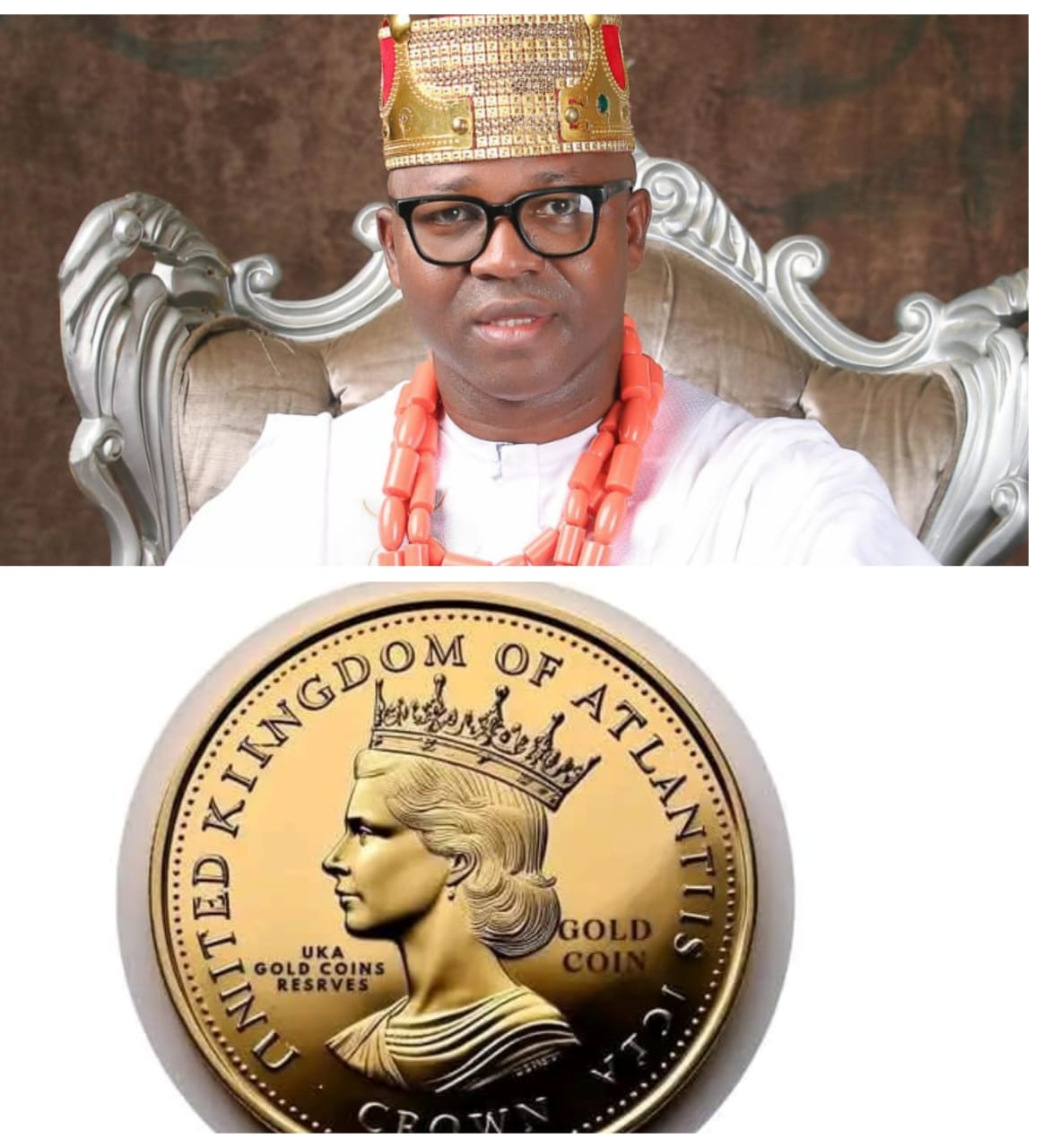
*BREAKING NEWS*
UKA Shakes Global Digital Finance Space with É-ATC Gold Coins Launch
In a groundbreaking move, the United Kingdom of Atlantis (UKA) has officially launched its É-ATC Gold Coin, backed by a staggering $10 billion gold reserve. This revolutionary cryptocurrency is set to disrupt the global digital finance landscape, boasting a starting market capitalization of $10 billion and a token price of $20.
The launch of the É-ATC Gold Coin marks a significant milestone for UKA, demonstrating its unwavering commitment to innovation, financial stability, and progress. The organization apologizes for recent digital inconsistencies and assures stakeholders that corrective measures are in place to ensure a seamless experience.
Emperor Dr Ugochukwu Christian Esemonu. Emperor incharge of Africa Region, Emperor incharge of Santorini Empire. Also Emperor incharge of Admin to the Global Throne. A man who is standing stronger and stronger inspite of distraction, expressed heartfelt gratitude to the Almighty God, Jehovah, and acknowledged the visionary leadership of Nobilis Solomon Winning, the Father of the Kingdom. The message also recognized the invaluable contributions of esteemed stakeholders, including the Global Emperor Admin of Atlantis, the Head of Government, and the Secretary General to Government.
The É-ATC Gold Coin is designed to rival leading global digital solutions, offering a secure, reliable, and transparent means of financial transaction. UKA citizens and global stakeholders are encouraged to complete their KYC processes and participate in acquiring the coins, becoming part of this historic moment in digital finance history.
“Today, we mark a new chapter in UKA’s journey, one of innovation, growth, and prosperity,” said Emperor Dr. Ugochukwu Christian Esemonu. “We are committed to delivering excellence and driving progress for our citizens and stakeholders.”
UKA’s leadership has called on citizens to unite, move forward in discipline, and peaceful coexistence, as they expand their platforms for business, trade, investment, and exchangeability. The organization is poised to surprise its critics and rise stronger, with a focus on delivering tangible results and driving growth.
The Reigning Monarch Emperor Solomon Winning’s unwavering faith, courage, and tenacity have brought UKA this powerful new beginning. His steadfast leadership has kept the vision alive, even in challenging moments, and has proven to be a beacon of hope for the people of UKA.
The É-ATC Gold Coin is now among the top 12 most powerful market capitalization in the world, a testament to UKA’s commitment to excellence and innovation.
*Key Highlights:*
– É-ATC Gold Coin launched with $10 billion gold backing
– Starting market capitalization: $10 billion
– Token price: $20
– Crypto version designed to compete with leading global digital solutions
– UKA citizens and stakeholders encouraged to participate in acquiring coins
society
Zamfara State Launches Landmark IDP Policy and Action Plan as UNDP, Northwest Forum Pledge Support
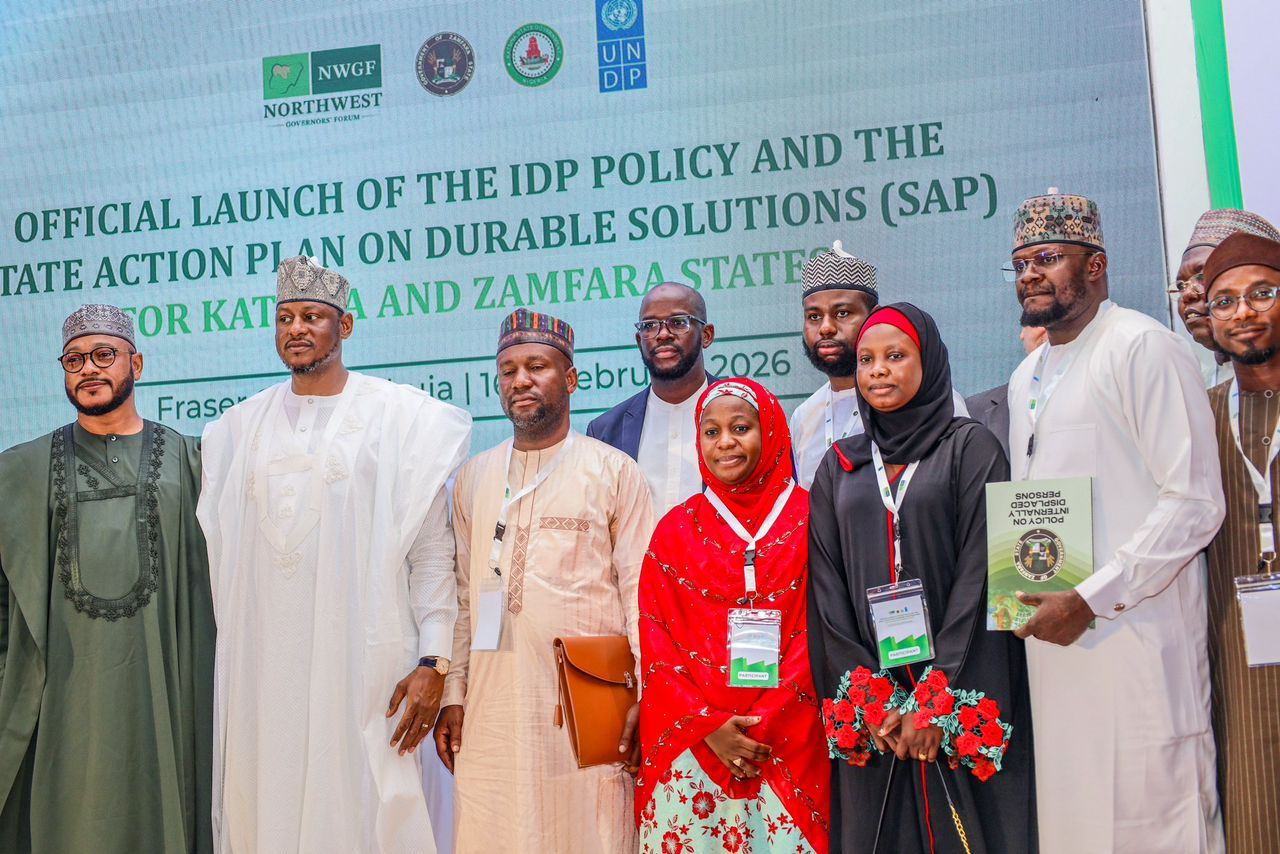
Zamfara State Launches Landmark IDP Policy and Action Plan as UNDP, Northwest Forum Pledge Support
In a significant move to address the humanitarian crisis wrought by banditry and internal displacement, the Executive Governor of Zamfara State, His Excellency Dr. Dauda Lawal, has officially launched a comprehensive policy framework and action plan aimed at delivering durable solutions for internally displaced persons (IDPs) in the state.
The Governor attended the joint launch ceremony for the IDP Policy and the State Action Plan on Durable Solutions, an initiative simultaneously rolled out for both Katsina and Zamfara States in the nations capital Abuja today Feburary 16, 2026. The event marks a pivotal moment in the region’s approach to managing displacement, shifting from emergency response to long-term, sustainable recovery.
The ambitious programme is the product of a strategic collaboration between the Northwest Governors Forum and the United Nations Development Programme (UNDP). This partnership underscores a unified, regional acknowledgment that the challenges of displacement require coordinated, multi-state solutions that address root causes and build lasting resilience.
For Zamfara State, which has borne the brunt of years of insecurity, the new policy is being hailed not merely as a bureaucratic formality, but as a binding social contract with its most vulnerable citizens. It establishes a clear roadmap for restoring the dignity of displaced families, with a laser focus on rebuilding shattered communities and creating viable pathways for safe return, peaceful resettlement, and sustainable reintegration.
The framework goes beyond temporary relief, outlining concrete strategies to help displaced populations not just survive, but ultimately thrive in safety. It seeks to transform the lives of those who have lost their homes and livelihoods by ensuring they are active participants in the state’s recovery.
Speaking at the launch, Governor Lawal reaffirmed the administration’s unwavering commitment to translating the policy document into tangible, measurable impact on the ground. “Under my leadership, we remain committed to ensuring that this framework translates into measurable impact for our people.”
The launch signals a new chapter for Zamfara, one focused on healing and forward momentum. By anchoring the response in a durable solutions framework, the state government aims to build systemic resilience, strengthen the capacity of local institutions to manage future crises, and ultimately, shape a more secure, stable, and inclusive future for all residents of Zamfara State.
-

 celebrity radar - gossips6 months ago
celebrity radar - gossips6 months agoWhy Babangida’s Hilltop Home Became Nigeria’s Political “Mecca”
-

 society6 months ago
society6 months agoPower is a Loan, Not a Possession: The Sacred Duty of Planting People
-

 news6 months ago
news6 months agoTHE APPOINTMENT OF WASIU AYINDE BY THE FEDERAL GOVERNMENT AS AN AMBASSADOR SOUNDS EMBARRASSING
-

 Business6 months ago
Business6 months agoBatsumi Travel CEO Lisa Sebogodi Wins Prestigious Africa Travel 100 Women Award


